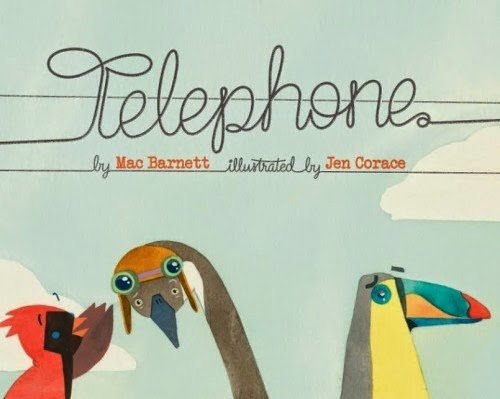Bible Transmission Not Like "Telephone"
“It'stime to fly home for dinner!” we read in the new children’s book, Telephone. In this witty tale from award-winning,bestselling author Mac Barnett, a mama on a wire passes a message for her son, Peter, to the next bird down. But as the message travels to Peter, each subsequent bird hears Mama's message according to its own hobbies. Forexample, the baseball-loving bird thinks Peter is supposed to hit a fly ball. Hilariousstuff.
Didyou ever play the game of telephone as a kid? I know when my friends and Iplayed it, we would purposely distort the message to make the outcome funnier.
Sometimes people think that’s howthe Bible’s oral history happened. Bill Nye the Science Guy made this exactanalogy, in fact. Such folks argue that nobody has a clue what the originalmessage was because it got so distorted in transmission.
But that analogy is flawed. Deeply. It shows an ignorance about oral culture. When you have no paper or iPhones, you remember stuff better as part of everyday life. Because you depend on memory. And you're trying to remember precisely.
Consider just one of the ethnology textsfrom Genesis. (An ethnology is like a genealogy except that it sometimes leavesout generations in which pretty much nothing happened). Imagine passing thisdown the telephone line:
Cain knew his wife, and she became pregnant and gave birthto Enoch…To Enoch was born Irad, and Irad was the father of Mehujael. Mehujaelwas the father of Methushael, and Methushael was the father of Lamech. Lamechtook two wives for himself; the name of the first was Adah, and the name of thesecond was Zillah. Adah gave birth to Jabal; he was the first of those who livein tents and keep livestock. The name of his brother was Jubal; he was thefirst of all who play the harp and the flute. Now Zillah also gave birth toTubal-Cain, who heated metal and shaped all kinds of tools made of bronze andiron. The sister of Tubal-Cain was Naamah (Genesis 4:17–22).
People learning such oral histories memorized them,repeating them back till they got every detail right before passing down theinformation to the next generation. And they had a motivation to get it all perfect: itwas their own family's story. They themselves did not want to be forgotten, so they required exact precision from those to whom they passed the histories. Unlike my friends and me, they had a strong motivation toget it right.
The movie, The Chosen, demonstrates what such a transmission was like. In one scene, Hassidic young men memorize together ethnologiesin Scripture. The elders would sometimes change one word or name to catch the young men in imprecise transmission. That's because everyone understood that oral historyhad to be passed down with word-perfect precision.
Today’s translators go all the way back to the oldesttransmissions rather than using the message from the closest person on the wire.In the bird-on-the-wire analogy, they skip the last 20 birds and get as closeto “Mama’s message” as possible.

